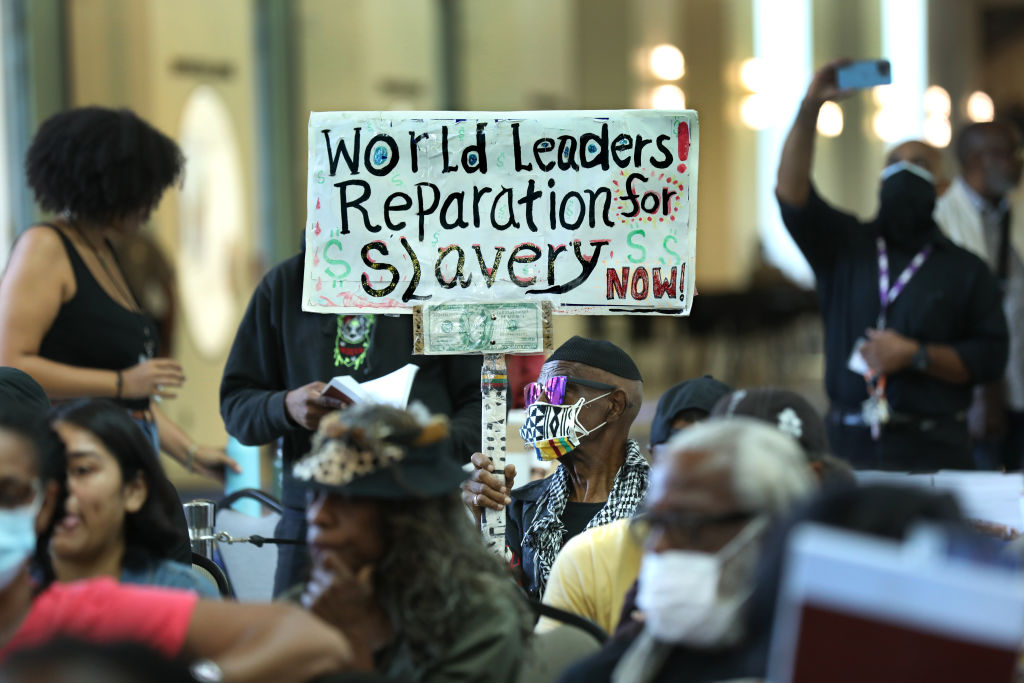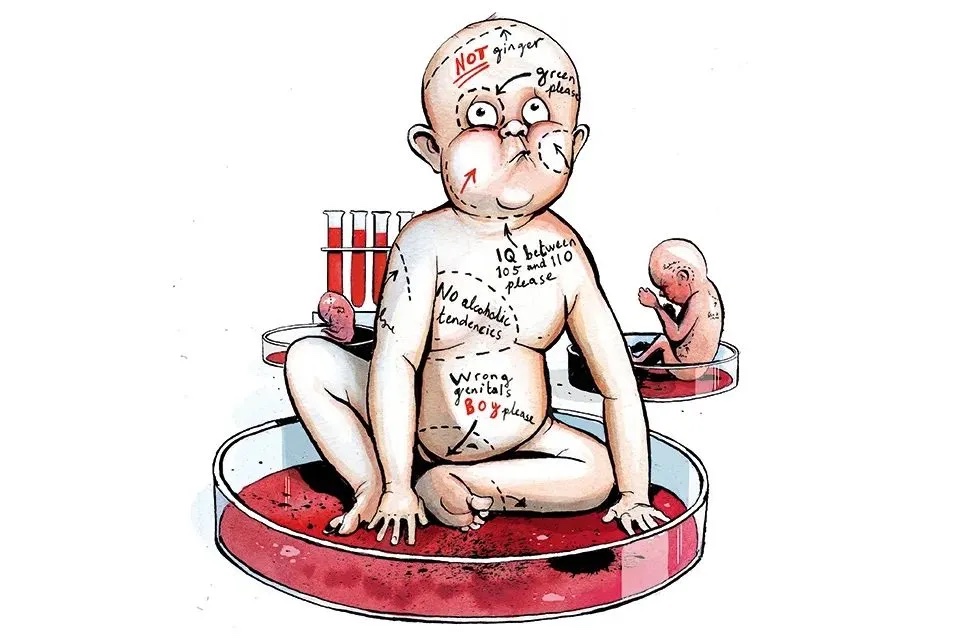We live in the Golden Age of Revision. Not everyone has noticed, so let me mention some of the highlights of the art of the Michelangelos and Monets of the revisionist moment.
First, of course, we have found the path to revising birth certificates and chromosomes on the matter of an individual’s sex, or as we have been taught to say, gender. This is revision par excellence, but only the beginning.
Then we have the New York Times in the company of many thousands of American school teachers who have miraculously overthrown the burden of snow-capped mountains of historical evidence and wizened learning of generations of historians. Their revision reveals that the real history of America began in 1619 with the arrival of Angolan captives at Jamestown. And that the American Revolution was undertaken by colonial slaveholders to prevent the British Crown from emancipating the slaves and thus pre-empting Abraham Lincoln by four score and seven years.
Not all such revising is on so grand a scale. Puffin Books, named after the North Atlantic seabird with the clown-colored beak, took the occasion to revise the popular children’s books by the late British author Roald Dahl. Penguin, the bigger bird that commands the Puffin, appointed a panel of “sensitivity readers” to expurgate word such as “fat” and revise storylines to replace a character whom Dahl wrote as supermarket cashier with one who is “top scientist.” Dahl’s original text was hurtful to the obese, and a female character is far more role model-ly in a lab coat, rather than in a clerk’s tunic.
I should say that Puffin’s feathers were ruffled by those who disliked the prospect of Charlie and the Chocolate Factory changing its secret recipes, and words such as “mother” and “father” being unisexed out of James and the Giant Peach. We are now told that the original texts will be available as socially marked “classic” editions.
It is a genial marketing solution that might well be applied to birth certificates and women’s sports (the 200-meter backstroke featuring classic women) and to American history textbooks (The Parade of American History, classic edition featuring First-in-War-First-in-Peace-and-First-in-the-Hearts-of-His-Countrymen, patriot George Washington!).
Pause to think about it and you, dear reader, can come up with dozens of other examples. We were told that face masks stopped the spread of viruses, until we were told “never mind.” We were told Covid came from frisky bats, not Fauci-funded Chinese labs. The Energy Department and the FBI now say it was the Wuhan lab all along. Sorry about ruining the careers of you skeptics. These things happen.
Is there anything we can’t revise? Raquel Evita Saraswati, who until last week served as the chief equity and inclusion officer for the Philadelphia-based American Friends Service Committee, might have an answer to that. Ms. Saraswati joins the growing queue of white women who attempted to pass herself off as BIPOC of some sort. In her case, she presented as Latin, South Asian and Arab. She began life, birth-certificate-wise, as Rachel Seidel, acquired the name of an Indian goddess and buried her actual ancestry, which is British, German and Italian. To her colleagues she was a “queer, Muslim, multiethnic woman,” but unmasked, she became the new Rachel Dolezal, the white woman who, pretending to be black, rose to become head of the NAACP’s Spokane chapter.
So, apparently, some forms of revision are not yet socially acceptable.
But the Golden Age of Revision is not over. San Francisco African American Reparations Advisory Committee has issued a report recommending that each black resident of the city receive a lump sum payment of $5 million. This payment is intended as reparation for the “forced enslavement of people of African descent.” Notably, slavery was never legal in California — and whatever injustices people of African descent suffered in California’s past, slavery wasn’t one of them.
It is perhaps nice that San Francisco wants to make up for injustices committed by others elsewhere, but the Advisory Committee is more revisionist than that. The payment in this case is meant “to encompass not only the atrocities committed by this country during the era of chattel slavery, but also call out the role of government in creating and perpetuating poverty by codifying racist practices in housing policy, particularly during the postwar era of urban history in the 1950s through 1970s known as urban renewal.”
The “racist practices” in question are summarized in the report as “a legacy of civic divestment” from the 1940s onward in which “black wealth was undermined” and “near-exclusive black communities” were “facilitated and coddled.” The terminology is a bit confusing, but the “coddling” appears to mean forced segregation, which indeed was a bad thing.
I wouldn’t dissent from this summary, nor, having no expertise in this era of San Francisco history, would I endorse it. But I bow in admiration at the audacity of the revisionary spirit. San Francisco, like the rest of the country, certainly had a history in which racial discrimination played a significant part, but when the Advisory Committee gets to more recent times, it acts in the spirit of the 1619 Project by turning huge achievements in civil rights upside down. In 1996, California voters by a wide margin passed Proposition 209, banning racial preferences. It outlawed racial discrimination, but in the eyes of the Committee this outlawing of racial discrimination was itself racial discrimination: “The passage of Proposition 209 undermines black-owned businesses that seek to obtain public contracts with the State of California and local governments.”
The idea of paying current black residents of San Francisco $5 million each regardless of any personal injury or injustice they may have suffered fits perfectly well with the collectivist mindset that has seized so many Americans. One might think that San Franciscans with any shred of common sense or spirit of actual justice would laugh this proposal to scorn. But those sort of San Franciscans have spent the last few years withdrawing inland, or moving to Colorado, Montana or Texas. Those who are left may be too mesmerized by their reflections in mirrors as people of transcendental wokeness to grasp that they are being set up for revisionist plunder.
But chuckling at San Francisco’s follies is all too easy. The Golden Gate didn’t invent our Golden Age of Revisionism. It has just added another layer of gilt. In truth, we’ve been indulging in wild departures from fact in almost every corner of American culture. We can and do crazy ourselves with biological fables, historical lies, literary fabrications, scientific and medical impostures, and every perjury known to wit of postmodern man — and we enjoy the ride. Oh, to have finally rid ourselves of the iron burden of truth and the manacles of reason. Is $5 million per person too much to pay for such liberty?

























